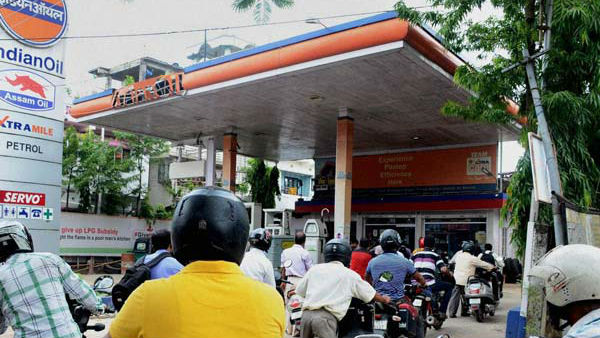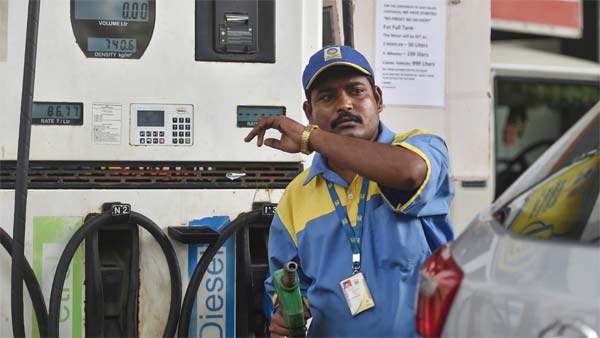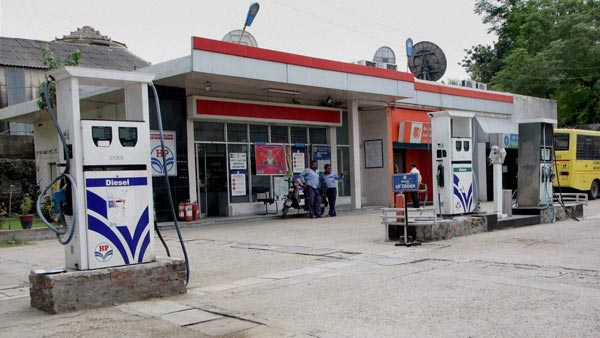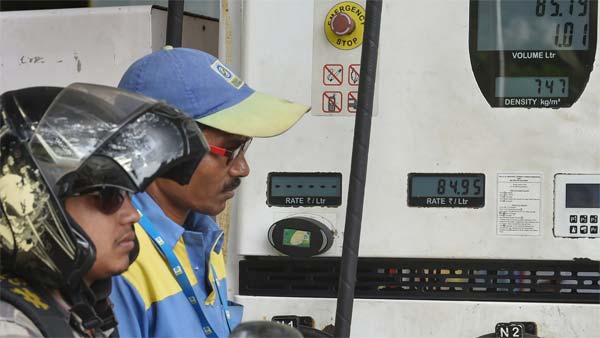Latest News
-
 Ford Mustang 60th Anniversary Package – Limited To Just 1,965 Units
Ford Mustang 60th Anniversary Package – Limited To Just 1,965 Units -
 Mahindra XUV 3XO SUV – Everything We Know So Far
Mahindra XUV 3XO SUV – Everything We Know So Far -
 Top 10 Used Bikes to Kickstart Your Riding Journey
Top 10 Used Bikes to Kickstart Your Riding Journey -
 Suzuki Swift Hatchback Scores 4 Star Safety Rating At JNCAP – ADAS, New Engine & More
Suzuki Swift Hatchback Scores 4 Star Safety Rating At JNCAP – ADAS, New Engine & More -
 Porsche Introduces Macan EV In India, Expanding Electric Portfolio
Porsche Introduces Macan EV In India, Expanding Electric Portfolio -
 Tata Motors To Manufacture Jaguar Land Rover Cars In Billion Dollar TN Plant - Report
Tata Motors To Manufacture Jaguar Land Rover Cars In Billion Dollar TN Plant - Report -
 Ford Territory SUV Name Trademarked – Likely To Be Positioned Below The Everest SUV
Ford Territory SUV Name Trademarked – Likely To Be Positioned Below The Everest SUV -
 Jawa Yezdi Expands Mega Service Camps To 32 New Cities, Focusing On Tier-II And Tier-III Regions
Jawa Yezdi Expands Mega Service Camps To 32 New Cities, Focusing On Tier-II And Tier-III Regions -
 Sany India Introduces SKT105E: An Electric Dump Truck
Sany India Introduces SKT105E: An Electric Dump Truck -
 Force Gurkha 5-Door SUV – New Features, Dual Tone Interiors & More
Force Gurkha 5-Door SUV – New Features, Dual Tone Interiors & More
Synthetic Petrol, Diesel & Kerosene: Could It Be The Fuel Of The Future?
Is synthetic fuel the fuel of the future? Several online forums have been buzzing with excitement about the availability of synthetic fuels. It could very well be the fuel of the future and could extend the life and usability of your petrol or diesel-fueled vehicle. Synthetic fuel is man-made and hence there is no question of it running out. Also, it has several advantages to it.

We petrolheads are a unique species. We love our cars and bikes and we consider driving and riding to be one of the greatest pleasures on earth. We love the drama, sound and feel of an internal combustion engine. It is quite obvious that electric vehicles are the future and this feel of the internal combustion we love so much is under the threat of being extinct in the next two or so decades.

It is true that electric vehicles have many advantages over those powered by internal combustion engines. EVs produce absolutely no emissions, and all the torque is available right from the get-go. In the recent past, EVs have become fast, and reliable.

However, they still fail to give us the same aural pleasure as an internal combustion engine. The feeling of hearing an engine rev in each gear is something that an EV can never replicate mechanically. If you are one of those who was worried about fossil fuel running dry and batteries completely replacing petrol and diesel, there's some good news.

A few companies have been working on synthetic fuel. This fuel, made through a scientific process can theoretically never run out. Synthetic fuel is created using hydrogen, and carbon. Hydrogen is extracted from water and carbon is then added to it to produce liquid fuel. The chemical balance can be modified to replicate petrol, diesel, or even kerosene.

This means, the current crop of internal combustion-engined vehicles can use this new fuel without any re-engineering. Synthetic fuels will be compatible with motorcycles, cars, buses, trucks, train locomotives and even ships. It is estimated that synthetic fuels will cost between Rs 100 to Rs 180 per litre.

Of course, these are the initial days and hence it is more expensive. It should get cheaper with time as production processes get more streamlined. Another disadvantage that comes to mind immediately is that the electrolysis process used to separate the hydrogen molecules from water consumes a lot of power.

The advantages though, are plentiful even when compared to battery power. Electric vehicles don't produce emissions. However, the batteries used by these EVs use up precious minerals from the earth. Graphite Lithium, Cobalt and Manganese used in Lithium-Ion batteries will eventually become harder to source and might eventually run dry too.

These batteries also have a set life-cycle after which they have to be replaced. None of these problems would exist if synthetic fuels became more commonplace. The current infrastructure too would require no changes. Existing fueling stations can still function as usual, and existing vehicles too can continue using it.

Given that the synthetic fuels are cleaner and scientifically produced, the particulates and harmful nitrogen oxides produced by internal combustion engines too would reduce. All of this sounds great and we feel we are ready for this fuel. However, there's still a long way to go before synthetic fuels become available commonly.

There are only a few synthetic fuel manufacturing plants across the world and they simply aren't enough. More plants need to be set up across the world. Also, the cost of these fuels would have to be brought down drastically if manufacturers want it to be accepted by the general public. Companies like Sasol, rentech, Syntroleum, Mobil, and Shell are into synthetic fuels.

Thoughts On Synthetic Fuels Being The Fuel Of The Future
The world and all the industries in it are in this unique phase of transition. Until a few years ago, all fuels were basically derived from fossil fuels. Now, as environmentalism and green activism take centre-stage, industries are trying to find newer ways of operating without damaging the environment.

At first, Hydrogen Fuel Cell Vehicles were thought to be the fuel of the future. Then there came an influx of electric vehicle manufacturers with lots of promising EVs. However, there still is a downside to these EVs in the form of their batteries and their manufacturing process. Now, though synthetic fuels seem to be the future.
With synthetic fuels come the option of keeping your favourite car or motorcycle as it is and still power it in the future. So, we now know which fuel of the future we are rooting for.



 Click it and Unblock the Notifications
Click it and Unblock the Notifications
















